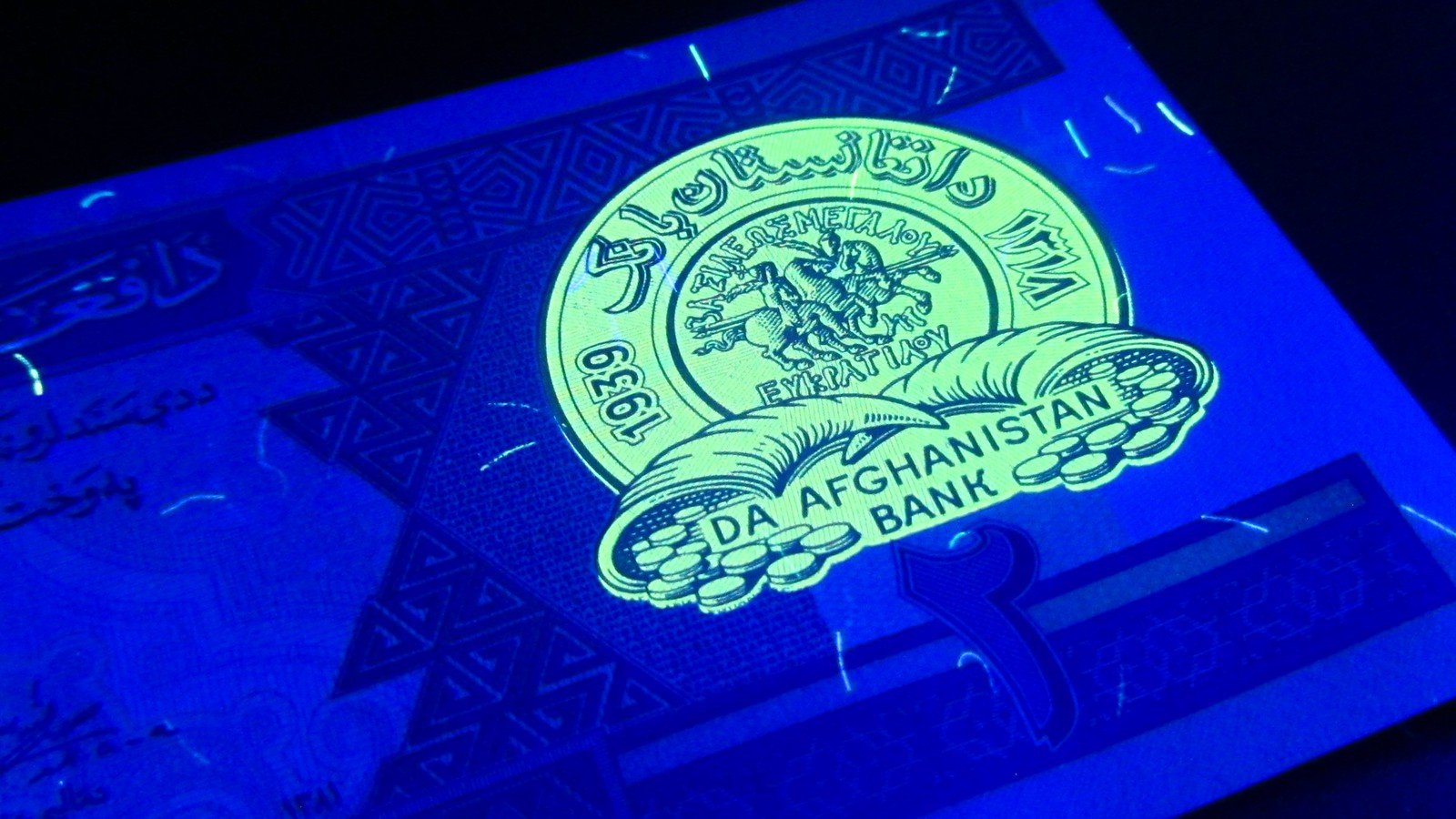The Afghan Fund: the Limits of Sovereign Immunity & Recognition Law
The U.S. is holding $3.5 billion of Afghan central bank assets in a trust fund—potentially violating bedrock international legal principles.

Published by The Lawfare Institute
in Cooperation With

Since the Taliban took control of Afghanistan in 2021, the United States has frozen approximately $7 billion worth of assets belonging to Afghanistan’s central bank, Da Afghanistan Bank (DAB). In September 2022, the United States transferred half of these assets to a new “Afghan Fund”—a Swiss-based organization designed to oversee targeted injections into the Afghan economy. The other half of assets remains frozen and potentially subject to execution by U.S. plaintiffs with default judgments against Afghanistan. Most legal commentary on the issue so far has focused on this second half of assets, the execution of which by U.S. courts would almost certainly violate sovereign immunity. The limited commentary on the Afghan Fund has suggested that it complies with both sovereign immunity and recognition law.
The issue of the fund’s legality under international law is far from straightforward. The White House reportedly established the fund at least in part to insulate the assets from civil plaintiffs with claims against the Taliban in U.S. courts. But the move arguably solves one legal issue by creating another. The fund would violate Afghanistan’s sovereign immunity under a more expansive view of the principle, which is arguably more reasonable than the narrow view adopted by many scholars. At the very least, the fund—arguably the first large-scale, nonjudicial confiscation of another state’s assets by the United States—tests the limits of both immunity and recognition law in new and potentially dangerous ways.
The Basics
According to the Afghan Fund’s statute, the organization seeks to “protect, preserve, and disburse assets for the benefit of the Afghan people.” In other words, the organization is not simply stewarding DAB reserves. It plans to make irreversible spending decisions on behalf of the Afghan public. Such disbursements could involve servicing Afghanistan’s debts to international financial institutions and paying for critical imports. The Taliban-led Afghan government is excluded from participating in these spending decisions. Indeed, one goal of the fund is to keep DAB reserves “out of the hands of the Taliban.”
According to the State Department, unspent funds will ultimately be returned to the DAB. However, the U.S. government has set several conditions for release of the funds. The DAB must demonstrate its “independence from political influence and interference”—that is, independence from the Taliban. Additionally, it must institute “adequate” money-laundering and terrorism-financing guardrails and onboard a “reputable” third-party monitor. After an audit in July, the United States’ assessment of the DAB remained “unchanged,” meaning that the sequestered assets were no closer to being returned.
The Fund & the Limited View of Sovereign Immunity
Sovereign immunity is the legal doctrine that protects countries and their property from interference abroad. The concept flows from the principle of sovereign equality of states enshrined in Article 2(1) of the UN Charter. However, sovereign immunity is rooted primarily in customary international law. The closest treaty on point is the UN Convention on Jurisdictional Immunities of States and Their Property (UNCSI), which is not in force but is understood to codify customary international law. The UNCSI specifies that a state “enjoys immunity, in respect of itself and its property, from the jurisdiction of the courtsof another state” (emphasis added). In Jurisdictional Immunities of the State (Germany v. Italy), the International Court of Justice (ICJ) interpreted the customary law of sovereign immunity “as the right of a State not to be the subject of judicial proceedings in the courts of another State.”
Some scholars have inferred from these limited sources that the international law of sovereign immunity applies only to domestic court proceedings. International law scholar Tom Ruys has written that financial sanctions against foreign central bank assets do not violate immunity rules as long as they do not involve any judicial activity. Under this interpretation, the Afghan Fund would raise no sovereign immunity concerns, simply because it is a creature of executive, not judicial, action. Indeed, Ingrid (Weurth) Brunk has made this very point in Lawfare. However, this narrow view of sovereign immunity is not universally accepted.
The Fund & an Expanded View of Sovereign Immunity
Some scholars have argued that sovereign immunity also covers executive measures, or even all “measures of constraint.” Intuitively, limiting sovereign immunity protections to confiscatory actions by courts but not to similar activities by executive or legislative branches would make little sense. Under this view, an executive order by President Biden transferring, say, $1 million to each person on a randomly picked list of possible victims of terrorism would be legal, while the same outcome after a painstaking adjudicative process in court would not. If anything, courts provide target states more procedural safeguards than do executive or legislative measures. And in either case, the underlying act is the same: The organs of one state expropriate the property of another. Indeed, drawing sharp lines between courts and other state institutions is probably misguided given the significant variety among states’ domestic political systems.
The (limited) treaty and case law is arguably consistent with this broader view of sovereign immunity. UNCSI does not explicitly limit the scope of sovereign immunity to judicial proceedings. Although the treaty concerns “measures of constraint in connection with proceedings before a court,” a court can include “any organ of a state ... entitled to exercise judicial functions.” As Oona Hathaway, Maggie Mills, and Thomas Poston have argued, executive seizures of central bank assets are “necessarily of a judicial nature,” since they are justified by a condemnation of the target state’s conduct. And even if the UNCSI does not explicitly address executive measures, it also does not foreclose the possibility of protections against them. Indeed, the convention’s preamble specifies that any matters that it does not directly regulate are governed by custom.
Nor does ICJ jurisprudence establish narrow limits on sovereign immunity. Jurisdictional Immunities concerned an alleged violation of immunities by courts. The ICJ has yet to pronounce itself on the lawfulness of nonjudicial measures. And even in that case, the court admitted that its cabined treatment of sovereign immunity is a “stricto sensu” interpretation, implying that broader understandings are possible. The Certain Iranian Assets case is arguably more relevant than Jurisdictional Immunities, because it concerned actions taken by the United States against Iranian central bank assets. However, the court declined to rule on state immunity in that case. In another dispute involving seizure of Timor-Leste’s state property by Australian law enforcement, proceedings were terminated before the court reached a judgment. In short, the parameters of sovereign immunity remain largely untested before the ICJ.
In any case, the 2004 UNCSI and the 2012 Jurisdictional Immunities judgment can do only so much to elucidate the contemporary scope of sovereign immunity. Proponents of the narrow view of immunity also point to state practice, emphasizing the fact that virtually no country has objected to nonjudicial constraints on state assets. But that is no longer true. The Taliban government has explicitly called the Afghan Fund a “violation of international norms.” And Iran recently began ICJ proceedings challenging Canada’s sanctions regime against it. Its initial filing appears to object to Canada’s executive asset seizures under sovereign immunity law, potentially putting this issue squarely before the court for the first time.
Sanctioning states have also expressed discomfort with long-term, potentially confiscatory measures, even when not taken by courts. The European Union Commission, for example, recently acknowledged in an option paper on frozen Russian assets that “the right to property and principle of State immunity ... guarantee the return of the assets.”
If the broad view of sovereign immunity is accurate, the Afghan Fund would clearly violate international law. Under its most expansive form, that all “measures of constraint” are prohibited, the U.S. freeze of DAB assets was illegal even before the fund was created. But even an intermediate view—for example, that permanent confiscatory measures are prohibited, while temporary asset freezes are not—would put the fund in legal jeopardy. Any DAB assets that the fund disbursed would amount to permanent confiscations, as those funds could no longer be returned to Afghanistan.
And even if one effect of the Afghan Fund is to shield DAB assets from unlawful attachment in civil suits against the Taliban, the fund itself would violate international law under this more expansive understanding of sovereign immunity.
Recognition & Countermeasures
Brunk has also argued that the fund does not raise immunity concerns because the United States has recognized the Afghan Fund board chairs, Anwar ul-Haq Ahady and Shah Mohammed Mehrabi, as representatives of the Afghan people. (The other two members of the board, whose votes are required for any decision, are American and Swiss.) Therefore, in Brunk’s view, DAB assets have not changed hands. There are at least three issues with this view.
First, it is not clear that the United States has recognized the fund’s chairs in any legally meaningful way. Traditionally, only states or governments—not individual ministers—have been subject to recognition. But here, unlike in the recent case of Venezuela’s Juan Guaidó and a “new Venezuelan government,” the United States has not recognized a new government of Afghanistan. Although officials from the previous Afghan administration organized an opposition government in exile after the fall of Kabul, the United States has never recognized that group as the rightful government of Afghanistan. The Afghan Fund co-chairs are both Afghan but have no plausible claim to represent Afghanistan as a political entity on their own.
Second, the Afghan regime arguably still enjoys immunity protections despite the United States’ refusal to recognize it. The international law of recognition is admittedly quite murky, and states are often driven by political calculus in making recognition decisions. But, under a leading view of government recognition crystallized in the Tinoco Claims Arbitration, an entity qualifies as a state’s government if it effectively controls the state’s territory, the population recognizes (but not necessarily supports) its authority, and there is no rival effective authority. And a plausible and long-standing view is that the Tinoco criteria, especially effective control, determine whether a government has rights and responsibilities under international law. There is some emerging state practice to support this view: Venezuela, for example, argued in a May 2020 letter to the United Nations that the United Kingdom’s transfer of control over its central bank assets to Guaidó violated its sovereign immunity. The Taliban, of course, meet each of the Tinoco criteria and would be entitled to sovereign immunity under this view.
In any event, longer-term pragmatic concerns also counsel the United States to avoid attaching too much legal significance to its nonrecognition of the Taliban. A Taliban regime with reduced rights under international law would also have reduced obligations. Many key treaties, such as the convention prohibiting terrorism financing, bind only states and their governments, not non-state actors. In effect, the United States would be trading immediate legal justification for setting up the fund for long-term legal leverage against the Taliban to honor its international obligations.
And third, even if such a recognition move were technically allowed under international law, it would bend the law to the breaking point. As Menno Kamminga has emphasized, “It is difficult to comprehend what could give the United States the right to recognize two handpicked economists as the new representatives of Afghanistan and then hand them (shared) control over Afghanistan’s Central Bank assets.” Under this view, the U.S. could name any Afghan person with a background in economics or public policy as the manager of DAB assets, without any regard for the country’s domestic political processes or the reality on the ground in Afghanistan. This move would essentially circumvent legal protections of states, such as immunities, by imagining a fictional sovereign rather than respecting the actual possessor of sovereignty in accordance with a reasonable understanding of recognition rules.
What’s more, unlike some sanctions, the Afghan Fund cannot plausibly constitute a legal countermeasure under international law. Countermeasures may be taken only in response to ongoing violations of international law. The United States has not identified any internationally wrongful act by Afghanistan that the fund is designed to deter, instead focusing on the Taliban’s “poor economic management.” In fact, most of the criteria that the U.S. has set for returning the assets to the DAB—policy independence, anti-laundering controls, and third-party monitoring—have little to do with inducing compliance with international law. Also, to the extent that the fund disburses DAB assets, it is an irreversible measure, which violates the law of countermeasures in most cases. And in any event, the United States has failed to follow the procedural rules for countermeasures: It did not announce the establishment of the fund or offer to negotiate with Afghanistan before setting it up.
It is worth noting that the conditions that the U.S. has set for return of the assets potentially violate the principle of sovereign equality of states, which prohibits state actions that forcibly or coercively affect other states’ internal sovereign affairs. The ICJ noted in Nicaragua v. United States—concerning military and paramilitary activities in and against the Central American country—that protected internal affairs include states’ choices of domestic political and economic systems. Requiring Afghanistan’s central bank to remain independent from its government arguably constitutes interference with the Afghan state’s protected “reserved domain.”
***
As states develop new sanctions, and legal arguments to justify them, it is important that decision-makers not lose sight of bedrock international legal principles. The United States’ creation of the Afghan Fund tests the limits of the doctrines of sovereign immunity and state recognition in unprecedented ways. The international legal community’s muted response, while surprising, is unlikely to last as states begin to react to this new development.






